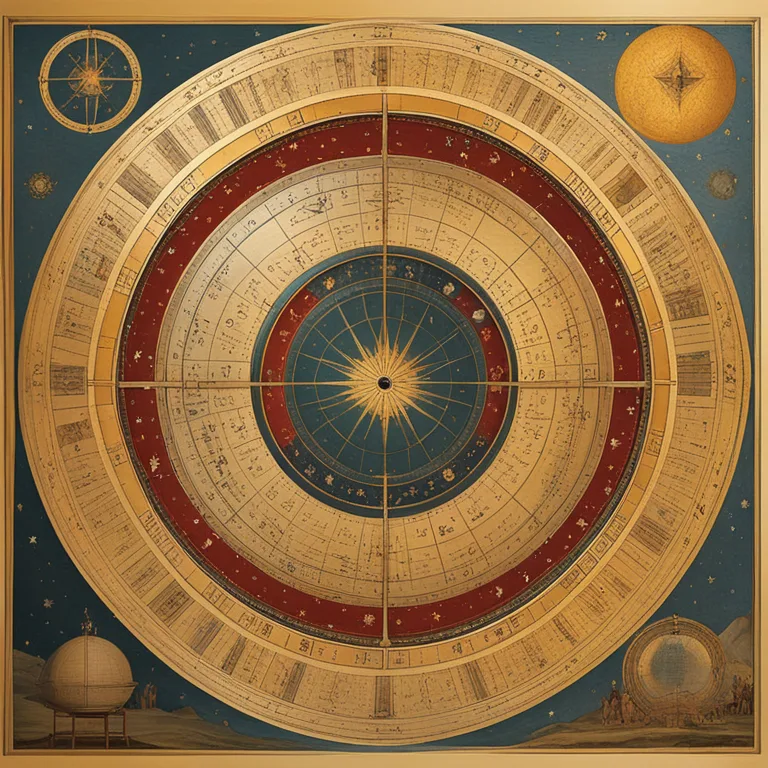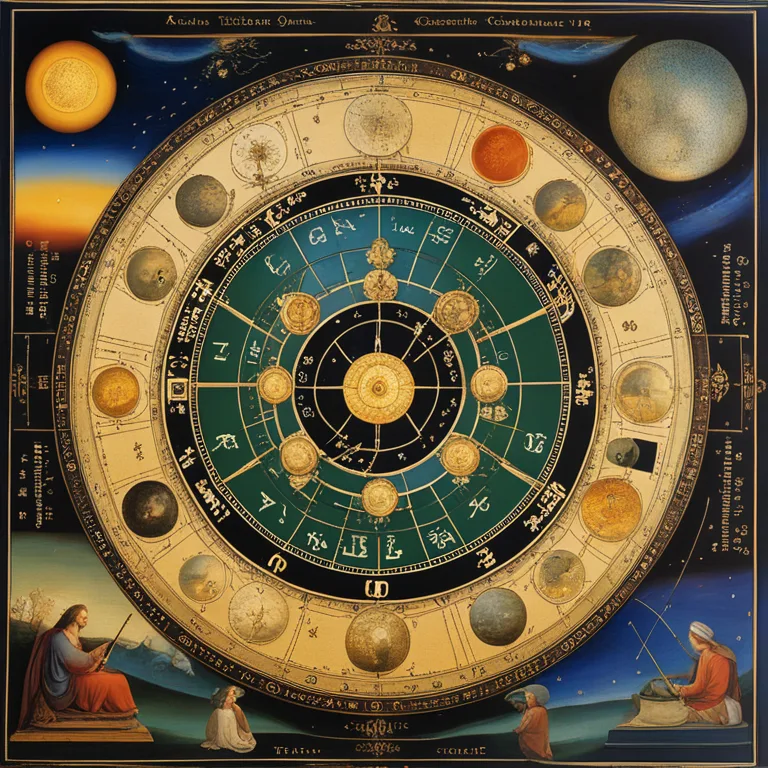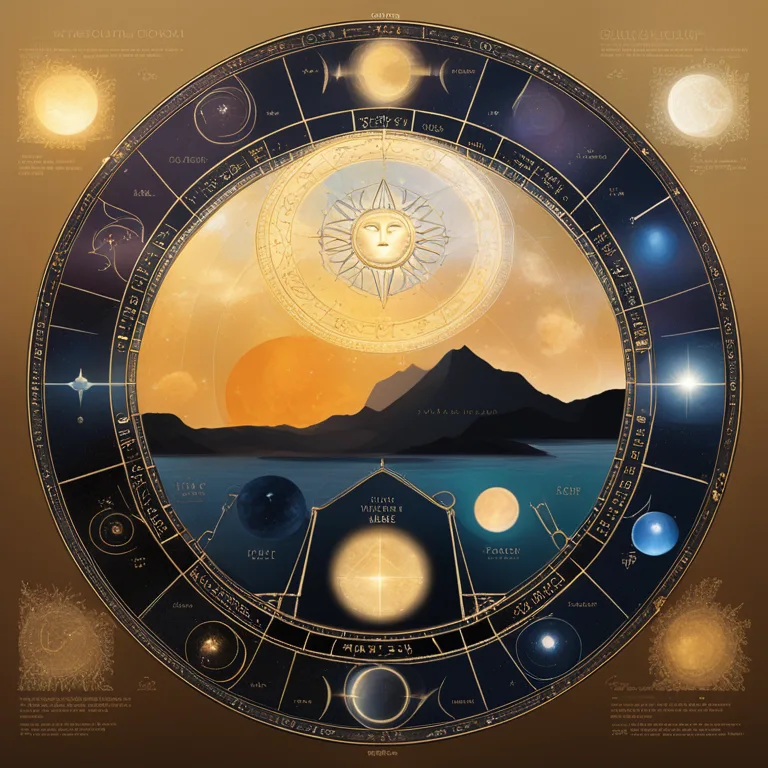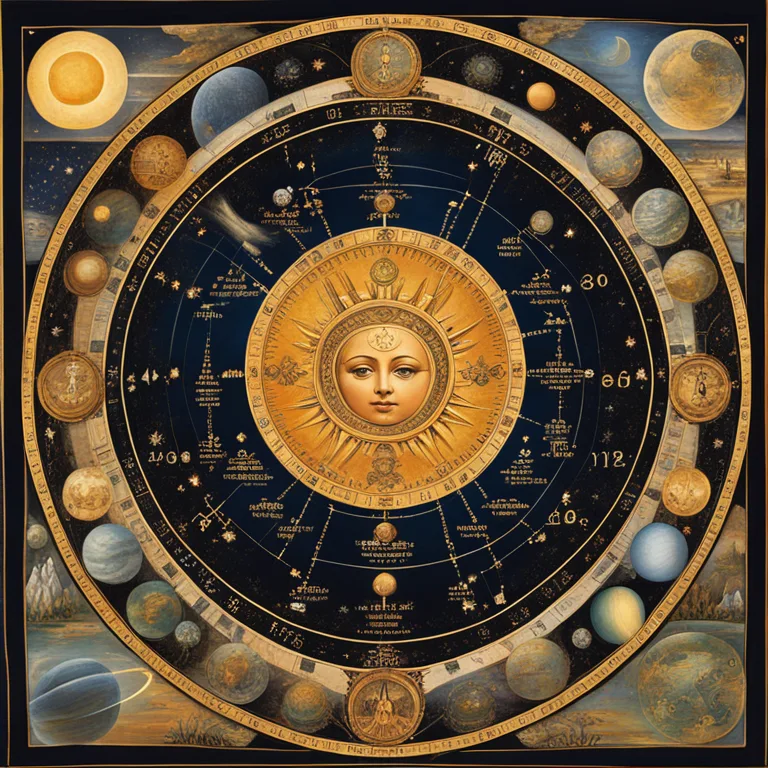
Can Birth Charts Foretell Life Events?
Explore the potential of birth charts in predicting personal futures amid ancient astrological beliefs and modern skepticism.
article by Priya Deshmukh
The Art of Astrological Prediction
Astrology has stood the test of time as an ancient art form that claims to reveal the influence of celestial bodies on human affairs. One of its core tools, the birth or natal chart, is a snapshot of the sky at the precise moment an individual is born. Practitioners assert that the positioning of the sun, moon, planets, and astrological signs in a birth chart holds significant sway over an individual's personality traits, life events, and destiny. As humanity steps into 2024 and beyond, astrology continues to generate both fascination and debate regarding its efficacy and reliability as a predictive tool.

Components of the Natal Chart
A birth chart comprises various components, each with its own symbolic significance. The sun sign represents the core identity, the moon sign indicates emotional undercurrents, and the rising sign – or ascendant – reflects persona and outward appearance. The chart's houses point to different life areas, planets signify energies and drives, and aspects illustrate the angles and relations between these celestial bodies. Understanding the intricate tapestry of a birth chart provides insights into one's potential paths and choices, yet many question whether this equates to a hard-and-fast glimpse into the future.

The Predictive Controversy
Even within astrological circles, the predictive power of natal charts stirs controversy. Traditional astrologers might advocate for the precise foretelling of future events, while psychological astrologers interpret these charts more as tools for self-understanding and growth. As data analytics and AI continue to evolve, technological advancements offer novel ways to analyze astrological data, potentially enhancing the accuracy of predictions. Nonetheless, the interplay between fate and free will remains a primary concern for skeptics, who argue that life's unpredictability cannot be charted like the stars.

Modern Astrology and Empirical Evidence
In the year 2024, astrology practitioners are increasingly under scrutiny to provide empirical evidence supporting their claims. While individual testimonies and anecdotal experiences abound, the scientific community seeks replicable studies to endorse astrology's predictive prowess. As such, the field of astrology is experiencing a paradigm shift, incorporating more elements of human psychology and scientific methodology while holding onto the mystery that has captivated humans for millennia. The true value in a birth chart may not lie solely in concrete predictions but in sparking a deeper self-awareness and connection to the universe.

Personal Growth Through Astrological Insight
Whether or not a birth chart can predict the future, many individuals find value in the reflective process it incites. By examining the strengths and challenges purportedly indicated in their natal charts, people can make conscious choices to navigate their lives more effectively. Astrology enthusiasts espouse that forewarned is forearmed; knowledge of future tendencies could prepare one for challenges and opportunities ahead. Simultaneously, critics uphold the importance of living in the moment, free from the constraints of predetermined astrological predictions.
An Integrated Perspective on Prediction
As we advance further into the 21st century, the dialogue between astrological tradition and contemporary understanding may reshape the role of birth charts in forecasting the future. An integrated approach that respects individual agency while exploring cosmic influences could bridge the gap between believers and skeptics. Astrology, it seems, will continue to serve as both a personal compass and a subject of debate, as it has for centuries before our time.
Published: 12/22/2023
Modified: 12/22/2023
More predictions
Come back here soon to learn more about yourself and your future



